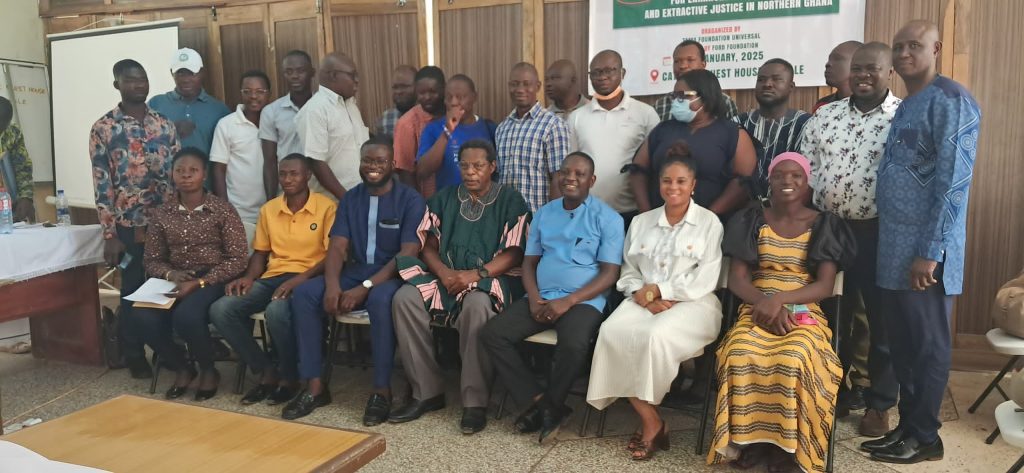|
Getting your Trinity Audio player ready...
|
The Northern Ghana Environment and Extractive Journalists Network (EEJNet) has been launched to address environmental challenges and ensure enhanced natural resources protection and management.
The EEJNet is a platform of journalists with interest in environmental protection and natural resources governance, comprising selected media practitioners in the five regions of northern Ghana; Northern, Savannah, North East, Upper East and Upper West. The launch coincided with a capacity building workshop, dubbed: “Building media and CSOs capacity for enhanced environmental and extractive justice in Northern Ghana.”
It was organized by the TAMA Foundation Universal with funding support from the Ford Foundation for CSOs and journalists. Northern Ghana is blessed with abundance of natural resources like gold and economic trees including timber, shea, dawadawa, baobab with arable agriculture lands.
However, it continues to face growing threats from unsustainable practices such as environmental degradation, indiscriminate tree felling, illegal and poorly regulated mining activities, and the far-reaching impacts of climate change. These challenges undermined livelihoods, compromise food security, and exacerbate social and economic inequalities.
Mr Mohammed Fugu, a Convenor of the EEJNet, during the launch of the Network in Tamale, said despite the gravity of those issues, there seemed to be significant gap in media coverage and advocacy to address the challenges. “Many journalists lack the expertise, resources, and motivation to investigate and report comprehensively on these complex topics,” Mr Fugu said.
“As a result, critical issues such as climate-smart solutions, biodiversity conservation, and community-led environmental restoration efforts are often underreported. This lack of visibility limits public awareness, engagement, and the advocacy needed to drive meaningful change”. It was against this backdrop that the Network was formed to empower and whip up interest of journalists to prioritize environmental and natural resources protection through comprehensive reporting.
“From here, we are launching an aggressive campaign against all forms of environmental injustices, particularly indiscriminate felling of economic trees in Northern Ghana. These destructive practices do not only cause deforestation but also undermines livelihoods and worsens our vulnerability to climate change,” he said.
“Through in-depth, evidence-based reporting, we aim to expose the severity of this issue and advocate sustainable environmental practices.” “Additionally, we will leverage the international days on environment to produce compelling, well-researched stories to raise awareness and inspire communities to take action.”
Dr Chrys Anab, Executive Director, TAMA Foundation Universal, indicated that northern Ghana was becoming a hub of mineral resources and there was the need for the media and CSOs to work together to ensure proper management and protection of the environment. He expressed concern over the high level of destruction, irresponsible and poor regulations particularly in the extractive sector, which was negatively impacting the environment.
Data from the Mineral Commission revealed that 128 licenses were issued in 2024 alone across the five regions of the north. Dr Anab, therefore, called on the media and the CSOs to use their platforms to advocate reforms, especially in the mining sector, to ensure good environmental governance and accountability. “The top-down approach of awarding licenses has always been the challenge,” he said.
Mr. Abdul Hayi Moomen, the Head of Public Affairs, University for Development Studies, noted that the media and CSOs had the power to change behaviors and influence policies, hence they must leverage on that influence to ensure collective action against environmental destruction.
Source: GNA


